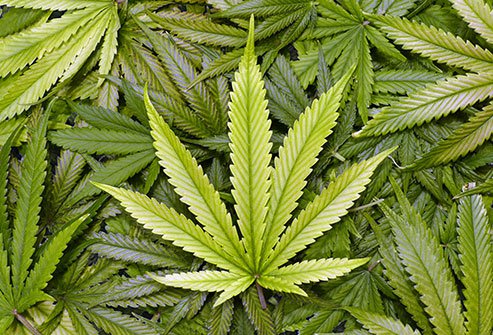There are quite a lot of things and issues that are still unclear about marijuana today, too, about the effects of this drug on the body. The site http://www.getridofthc.com offers answers to the most common questions related to this topic.
What is marijuana?
The intensity of this drug is determined by how advanced the concentration of THC (tetrahydrocannabinol), the active compound of the drug. It can also be found under other variants that are more concentrated: sinsemilla and even oil. Street language for this drug is “weed”.
What methods to consume exist?
Most users run the drug in the form of a cigarette (a method similar to cigarette smoking) that is popularly named joint. It can also be consumed by being smoked from the pipe or through a bong. The drug can also be consumed after it has been put in the tea and can even be cooked in some cakes. When found in the form of an oil, it can drip onto the surface of a normal cigarette to be smoked. Marijuana can also be consumed by cutting a regular cigarette after which the tobacco will be replaced with “grass” that will be combined with 40 measures of liqueur. In addition, it can also be consumed in combination with other drugs such as cocaine (crack).
What are the reasons why young people start consuming?
Most young people who consume the drug come to end this practice because they belong entourage at the time, due to curiosity or simply a desire to be able to integrate into a certain social circle or current flow.
Moreover, research and statistical studies have shown that those adolescents who come from families where parents are smokers or who, at some point in their lives, have embraced this vice, show higher risks of becoming predisposed to consuming such recreational drugs.
Also, many of the young people who have become addicted say that they have come to resort to the use of such a drug in order to deal more easily with feelings and negative states that include depression, anxiety, frustrations of different natures, anger or even boredom.
Marijuana can create addiction?
In general, the dependence created is not manifested physically (when quitting drugs, consumer will not enter the state of withdrawal), is not just an addiction at psychological level, a state of “good” with which the consumer becomes accustomed and, if it disappears, will feel the sense of longing for that sensation.
There are also cases where the drug can create for some consumers physical dependence when consumed for very long periods of time and in very high concentrations. In extreme situations, abstinence can lead to some withdrawal symptoms such as restlessness and restlessness, sleeping problems (insomnia or, on the contrary, sleeping too much), anxiety and panic, loss of appetite, weight loss, sometimes even shaking hands. Find out more here.
A study by American researchers has highlighted the fact that those young people who show anti-social behaviors are much more likely to develop addiction, especially as drinking is often accompanied by alcohol consumption or tobacco, possibly even other recreational drugs.
What are the general effects?
THC, the active compound of the drug, will assimilate into the bloodstream very quickly, so within a few minutes the consumer will experience effects including heart rate rhythm, balance and limb coordination problems, decreased reaction time, eye redness due to dilation of blood vessels at their level. Other effects of consumption are the same. In terms of short-term effects, recent memory is affected. Cognitive functions of the brain are affected, blood pressure increases. Due to diminishing the normal reaction time, drugs can cause serious road accidents.
What are the long-term effects of drug consumption?
Marijuana affects the immune system, especially in terms of the capacity of T cells located in the lungs, cells responsible for preventing certain infections. The consumption, unfortunately, increases the risk of developing certain cancers, which is explained by the presence of substances similar to those found in normal cigarettes in tobacco that are already considered to be important factors triggering some forms of cancer.
The drug may affect the airways and the lungs, and the risk of developing certain conditions will increase, affections including cough (sometimes accompanied by phlegm), chest pain, obstruction of the airway, increased vulnerability to infections from the lungs.



